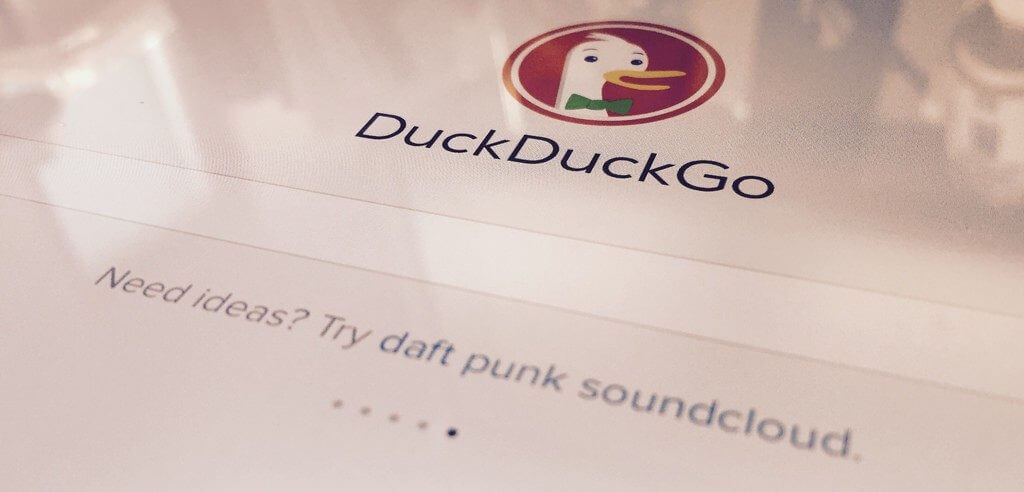The Internet is a fantastic universe that hosts all kinds of things: entertainment options, research books and papers, games, gambling, sports sites, social media outlets, and virtually anything you could imagine.
Most of the time, the mean or method you have to access those pages and services is using a search engine. They are platforms in which you write a query or topic you want to know more about, and they show you the best and most optimized results.
Is there a competitor for Google?
Now, you don’t need to know that the most famous search engine on the planet is Google. With the vast majority of the market share, this online giant has numerous advantages and benefits that make it the best in the business, or at least the most widespread.
However, one of those advantages is not privacy and anonymity. If you need or want to surf the Internet with no prying eyes and no one registering or sharing everything you do or visit the web, you need to consider DuckDuckGo.
DuckDuckGo, the best search engine for anonymity
DuckDuckGo, abbreviated DDG by the Internet community, is a search engine in the mold of Google, AOL, Yahoo!, Bing, and others. However, it is entirely different than its peers in more than a few aspects.
For starters, DuckDuckGo prioritizes the users’ privacy and avoids the filter bubble or customized search results. Also, DDG does not put together profiles of their customers and users.
Another distinctive factor is that DuckDuckGo deliberately shows users equal results for a specific search, unlike Google, for example, known for classifying results using profile algorithms previously put together and using information such as location.
Quality over quantity
DDG’s emphasis is focused on showcasing the best results, and not the most. The showings are a compilation of hundreds of sources, various of them well-renowned, such as Yahoo, Yandex, and Wikipedia.
DuckDuckGo’s source code is partly free software, hosted on the GitHub platform, under the Apache 2.0 license. However, the core is privately-owned. The enterprise is based in the state of Pennsylvania, in the United States of America. To the contrary of Google, which has thousands of workers, DDG’s staff is formed by 40 people, and the name is originated from the beloved game Duck Duck Goose.
DuckDuckGo’s popularity has raised over the years due to its exciting features for people who prioritize safe and private browsing. 2014 was a very successful year as DDG was added to the Safari browser as an optional engine in September; and later, in October, it was added included in Mozilla Firefox. Tor started to host it in May 2016.
The importance of privacy
The most relevant difference between DuckDuckGo and Google is that the latter continuously gather information about their clients and users, whereas the former leaves them alone. Privacy-conscious netizens are migrating to DDG because they don’t want to feel spied on.
It is not by chance that DuckDuckGo is now the default search engine of the Tor network: if Internet users want privacy and anonymity, then Google should not be their primary choice.
If your Internet Service Provider and your browser had access to your generated data and browsing history and decided to use that information to cause any harm, even if it wouldn’t be intentional, then you surely will be disappointed.
With logs of your activity, your browser could provide that information to law enforcement agencies investigating you for things you may or may not have done. On top of that, Google feeds online stores and big Internet companies with useful data about your possible consumption likes and patterns. You don’t want to receive annoying, spamming ads in your session, do you?
Why should you use DuckDuckGo as your search engine? Here are five reasons

- It has no ads
We understand that one of the few ways that these search engines have to earn money is by running advertising messages. However, the opinion of most users is that ads are incredibly annoying and they would be more than happy if they disappeared from the page’s design.
While the sustainability of the DuckDuckGo no-ad policy may be in question (again, it would be entirely understandable from a commercial point of view if they decided to run them on occasion,) this search engine currently doesn’t have advertising on its layout.
- It shows every search result on one page
An enormous improvement over Google’s search results pages, DuckDuckGo provides the option to scroll down to see all the related results of one query or topic without having to access another page.
Let’s be completely honest. Not many people access the third or even the second page of Google’s results page. Do you know someone who does? They are, with all certainty, the exception to the rule.
- It allows you to experiment and customize
DuckDuckGo lets users experiment with different designs, colors, and options for the search results pages. It is a way for developers to provide that distinctive visual touch over other engines.
Having the opportunity to mix and match with appearances and designs empowers the user and makes it feel welcomed and in power of their platform. Studies show a healthy relationship between success and the ability to personalize a system.
- Enhanced privacy
While Google is famous for tracking their users’ activity and generated content for a variety of reasons, primarily financial, DuckDuckGo lets them browse anonymously and privately without gathering or sharing any information.
With all the recent cases of data theft, hacking attacks and other online breaches of privacy, savvy users are making clear their preference of services, sites, and browsers that promote a safe, private, and anonymous experience while surfing the web.
- Immediate info with no clicks
Before clicking on the preferred search result after performing a query in DuckDuckGo, the engine shows you a little bit of information about it, something like a snippet, for you to view a preview of the content you are about to access.
That method is advantageous, as it allows users to see every search result with a broader explanation, yet not so long to make the design unattractive or impractical. You could filter content and perform more efficient browsing without having to lose time waiting for the pages or tabs to open.
Other benefits ad strong points of the DuckDuckGo search engine
- DuckDuckGo has its syntax, the !bang command.
- It is a “one-man army,” owned by Gabriel Weinberg with the help of a few dozens of people for dedicated and attentive user experience.
- It is simpler and faster than Google.
- It is location agnostic: if you live in a specific nation, it doesn’t mean that you want to see the search results for that particular country.
- It is the default engine in the new Adblock Browser for mobile devices.
- It is loved and lauded by tech fans and experts around the world.
- It has a substantially lower bounce rate than Bing.
In conclusion, by now you understand why you need privacy in your online sessions. In case of an ongoing investigation, most browsers, Internet Service Providers, and search engines will collaborate to comply with law enforcement agencies to your detriment.
That is not to say you should use an anonymous browser or search engine and do shady things, but you get the point. The vast majority of privacy-focused users prefer to be anonymous for other reasons, primarily to avoid being tracked and to dodge annoying ads.
The best search engine for anonymity is DuckDuckGo. It is the primary platform for queries in the Tor browser, as it offers its customers privacy, a customizable experience, one-click solutions, and no ads (so far).

Mary Rutkowski
Gentlemen : I’m sold ! HOW do I use Duck Cuck Go ? I’ve tried to make it my go-to place but I must be missing something !! Help, please !